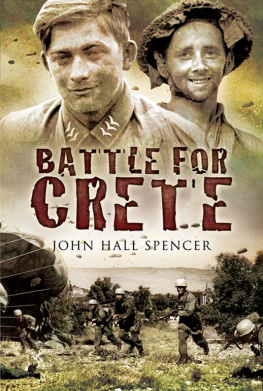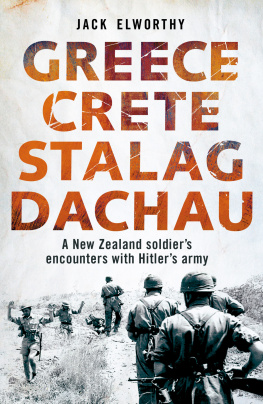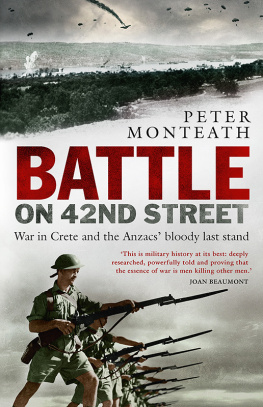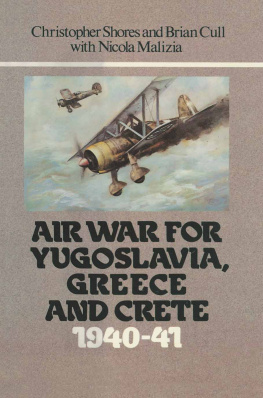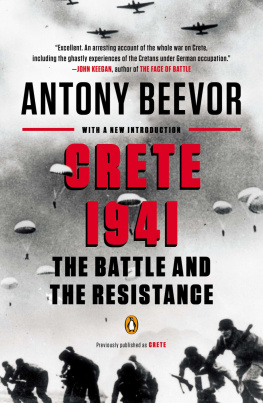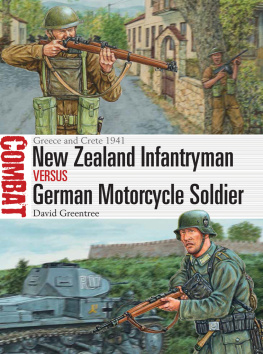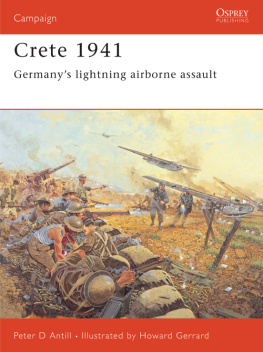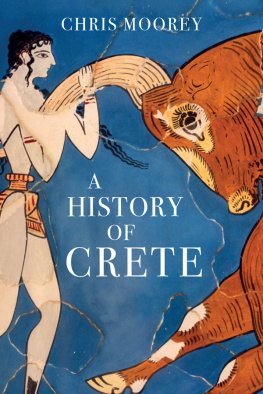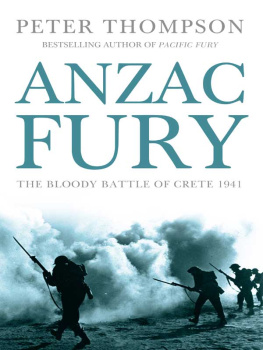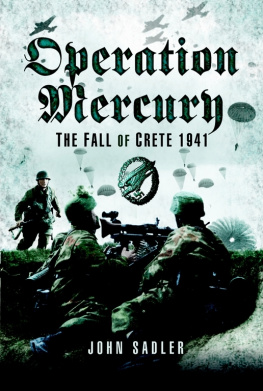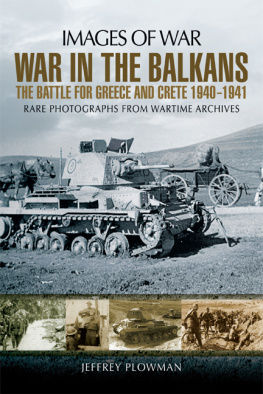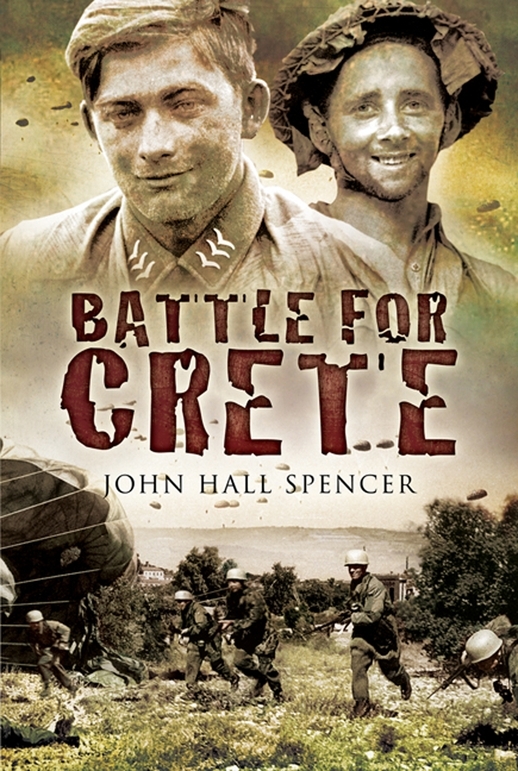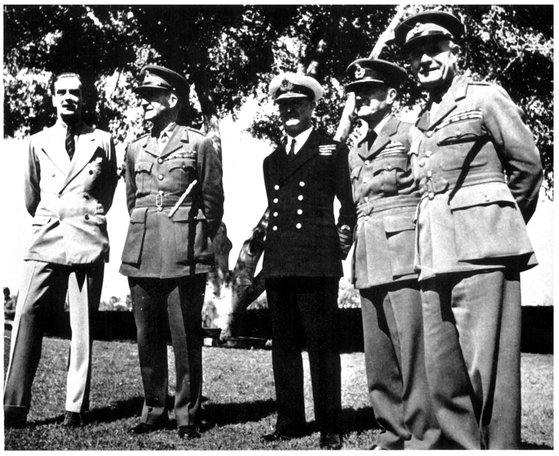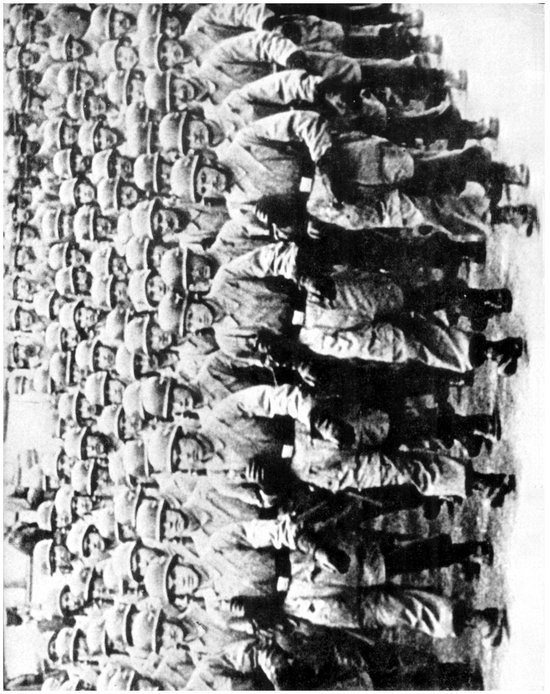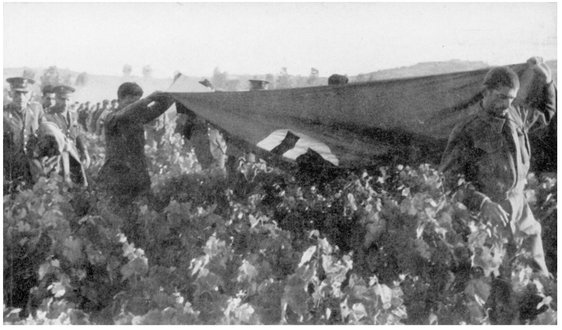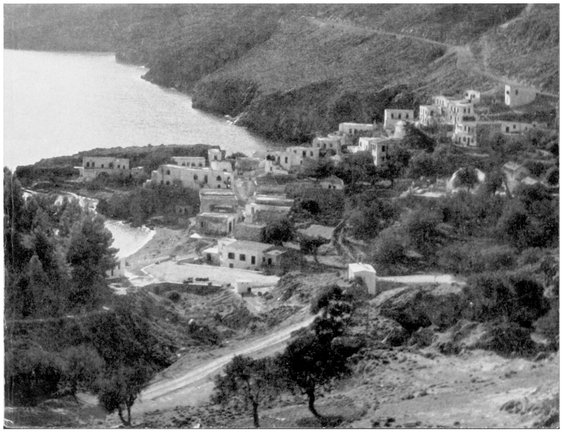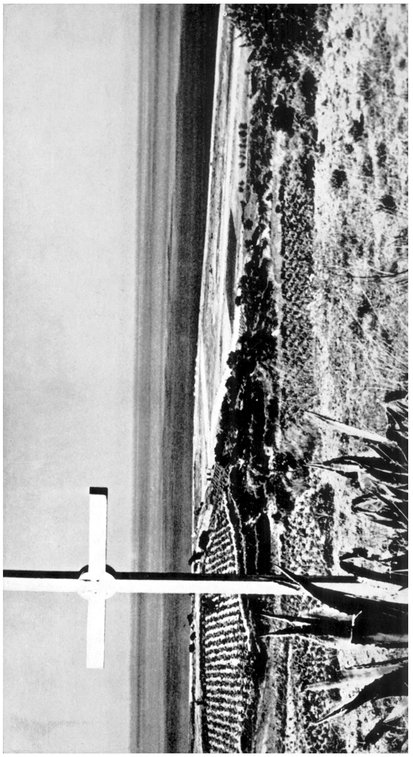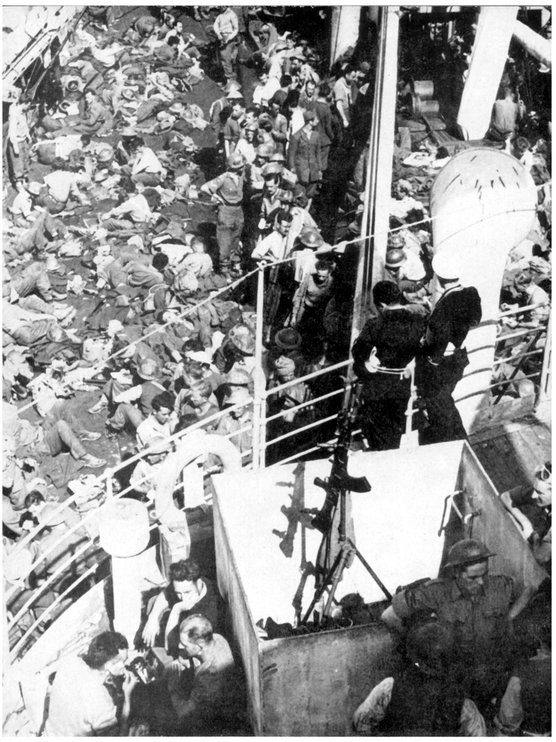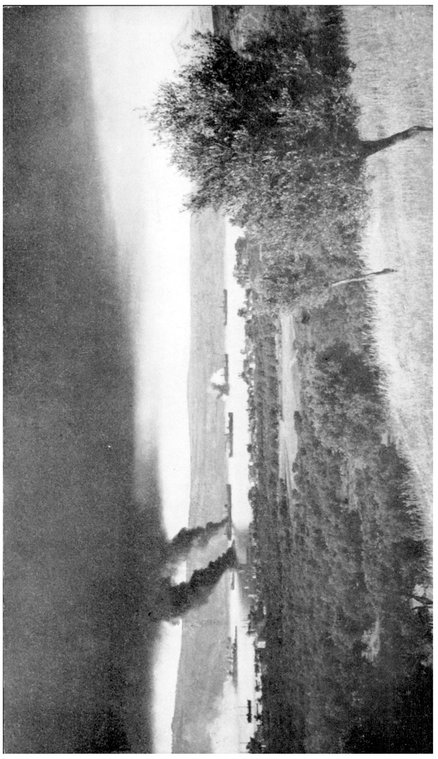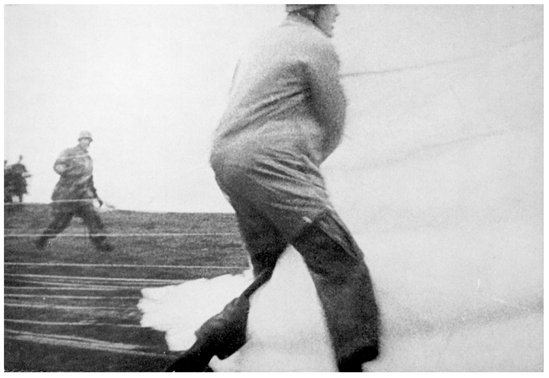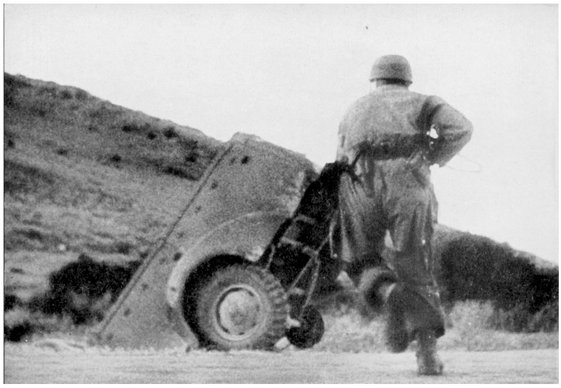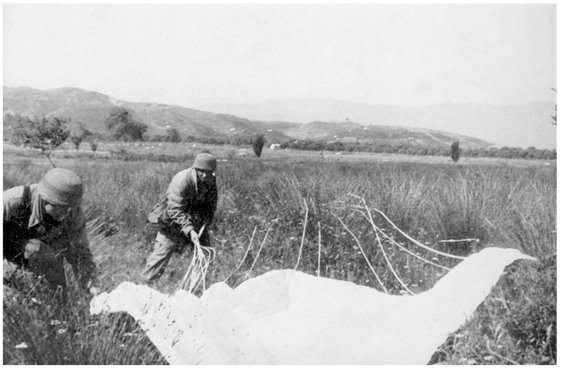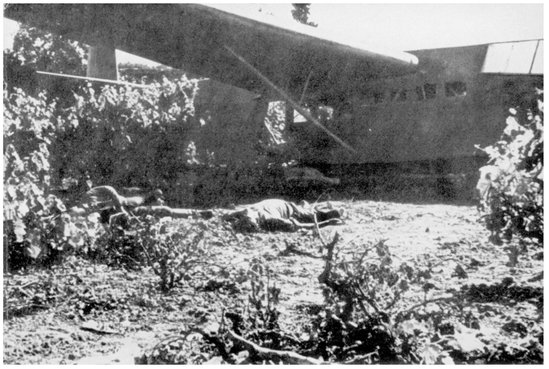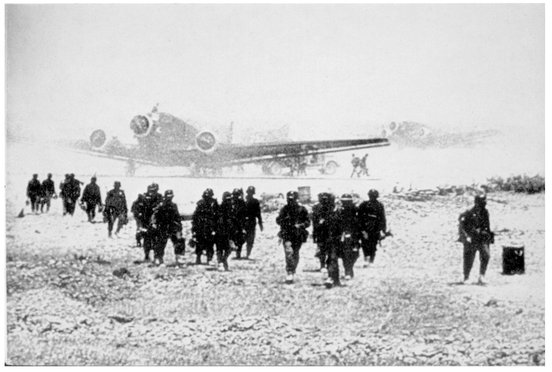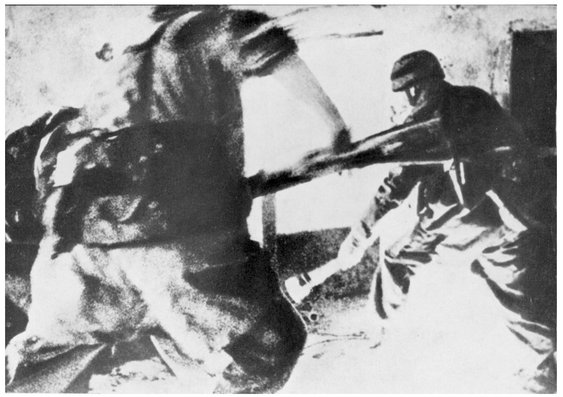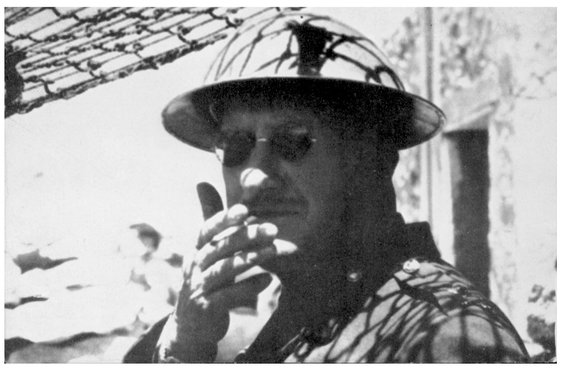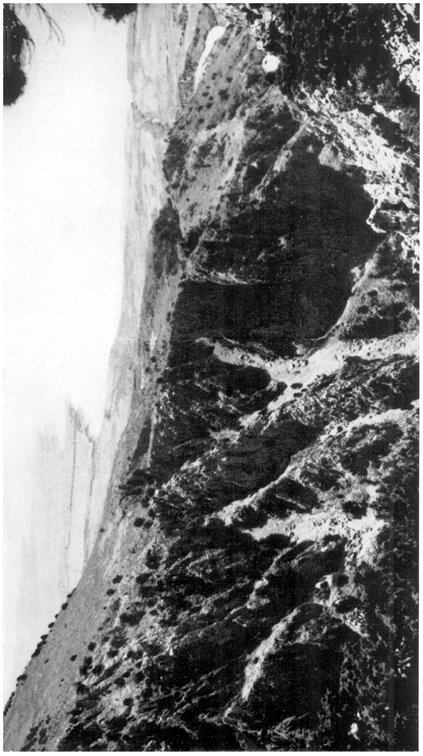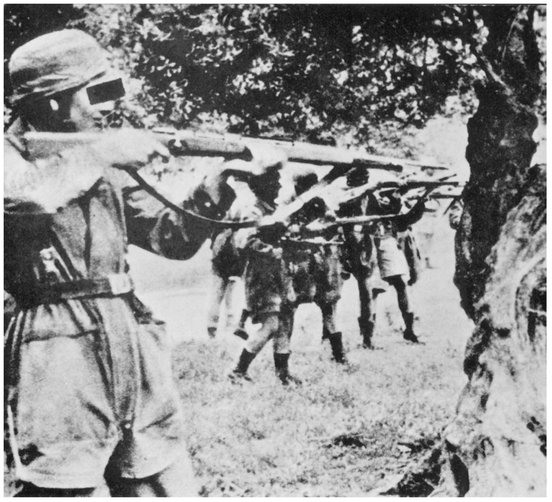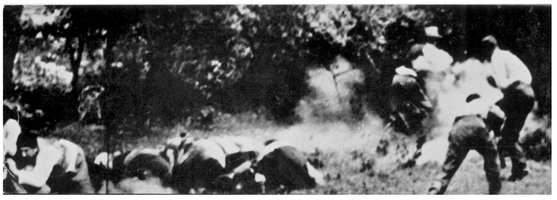The British Foreign Minister confers with Service chiefs in Cairo, March 1941. Left to right: Mr Anthony Eden, General Sir John Dill, Admiral Sir Andrew Cunningham, Air-Chief-Marshal Sir Arthur Longmore and General Sir Archibald Wavell.
Impact! German paratroops march into Athen.
Greek prisoners carry a swastika flag on their march through the vineyards as protection against the German Stukas.
Khora Sfakion, showing the small evacuation beach.
Today an iren cross surmounts Hill 107. Maleme Airfield is in the middle distance.
Australians en route from Greece to Crete.
Suda Bay after attack from the Luftwaffe, 20 May 1941.
The coming of the umbrella men to Crete. A German newsreel picture of the German drop over Maleme.
The landing Maleme. Airfield. A German newsreel picture.
The first minutes dash for cover; Hill 107 in the background. A German newsreel picture.
A comparatively comfortable landing; but the paratroops often had little time in which to re-group.
German glider-borne soldiers are killed before they go into action.
Reinforcements from the Mountain Division move off from the captured Maleme Airfield.
Germans at Galatas., Sunday, May 25: a rare action picture.
General Freyberg, V.C.. enjoys a cigarette during a lull in the battle.
The southern coast of Crete above the evacuation post.
This picture of a German firing squad comes from the secret archives of the German High Command.
Cretan victims of German reprisals.
Chapter One
The Royal Navy was there. Within a week of the Italian attack on Greece they had broken up an attempt to seize Crete, and their torpedoes delivered by Fleet Air Arm Swordfish had sent two cruisers and three of Italys six battleships to the bottom at Taranto. And Mussolinis troops fighting in Albania were faring badly. It was November 1940.
The Italian attack had been a rash and independent undertaking. Since the security leak from Rome of the impending German attack on the Low Countries earlier in the year (Hitler suspected King Victor Emmanuel but in fact it was Mussolini himself who instructed his Foreign Minister, Count Ciano, to warn the Dutch and Belgian Ambassadors that their frontiers were about to be crossed by German armour) Hitler had kept his own counsel.
Mussolini was jealous. In his weakness he could only complain to Ciano: It is humiliating to remain with our hands folded, while others write history.
He resented the German triumphs brought off without the aid of his advice, without a token Italian contribution, without even his foreknowledge. Ciano said: Mussolini resented the fact that Hitler did all the talking.... He had to keep quiet most of the time which, as dictator, or rather the dean of dictators, he was not in the habit of doing.
Hitler always faces me with a fait accompli , Mussolini complained to Ciano after his Brenner Pass meeting with Hitler on October 4. This time I am going to pay him back in his own coin. He will find out from the papers that I have occupied Greece. In this way equilibrium will be re-established.
He fixed the attack for October 28, and then wrote to Hitler on the 22nd, back-dating the letter to the 19th; referring in general terms to his ambitions in Greece, but without fixing dates which would have courted a restraining injunction, he sent the letter to Berlin to await Hitlers return from France.
Hitler was told the contents of the letter by telephone from Berlin two days later. He asked for an immediate conference. Mussolini suggested the 28th, at Florence. As Hitler stepped from his train, Mussolini greeted him with an attempt at Napoleonic lan . It did not quite come off. Fhrer, he said, we are on the march!
The Italian attack on Greece was seen in Berlin as a regrettable blunder. It had been made with three divisions only, entirely inadequate forces. At a conference on November 4 Colonel-General Alfred Jodl, Chief of Operations Staff of O.K.W. (the High Command of the German armed forces), said to the Naval Chief of Staff, Vice-Admiral Otto Schniewind: On no occasion was authorisation for such an independent action given by the Fhrer to the Duce.

